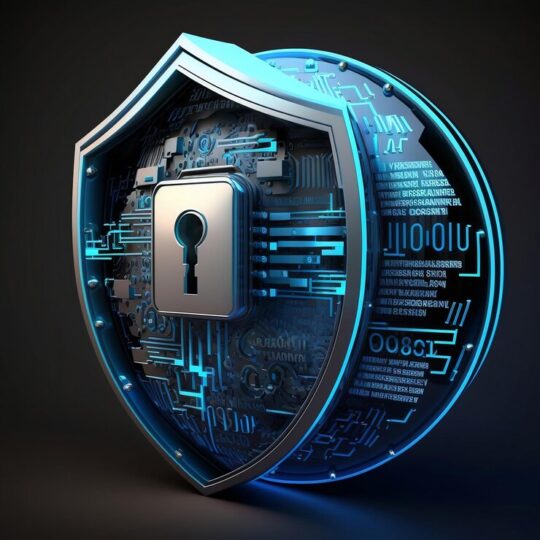Introduction
In an increasingly digital world, information security is a paramount concern. Cyber threats and data breaches are on the rise, making cybersecurity professionals more valuable than ever. If you’re looking to enter the world of cybersecurity or advance your existing career, information security courses are the key to mastering this vital field. In this comprehensive guide, we’ll explore the realm of information security courses, including ISO 27001 Training, the importance of certifications, the choice between e-learning and traditional classes, and what you’ll learn about the evolving cyber threat landscape.
Crucial Foundations: Exploring Information Security Courses
To understand the significance of information security courses, we must first recognize the pivotal role they play in today’s digital landscape. Here’s why they are essential:
- In-Depth Knowledge: Information security courses provide you with the in-depth knowledge required to safeguard data, systems, and networks from a wide range of cyber threats.
- Industry Relevance: These courses are designed to keep pace with ever-evolving cyber threats, ensuring that your skills and knowledge are up to date and aligned with industry best practices.
- Career Advancement: Information security professionals are in high demand. Completing these courses can open doors to lucrative career opportunities and career progression.
ISO 27001 Training: The Key to Information Security Excellence
ISO 27001 is a globally recognized standard for information security management systems (ISMS). Obtaining ISO 27001 Training can significantly enhance your understanding of information security. Here’s why it’s vital:
- Comprehensive Security Framework: ISO 27001 provides a comprehensive framework for managing information security risks. It covers everything from risk assessment to risk treatment and continuous improvement.
- Global Credibility: ISO 27001 is respected worldwide. Achieving this certification demonstrates your commitment to information security and opens doors to a broad range of job opportunities, both nationally and internationally.
- Improved Organizational Security: ISO 27001-trained professionals play a critical role in enhancing the security of their organizations, protecting sensitive information and ensuring compliance with regulations.
- Risk Management Expertise: This certification places a strong emphasis on risk management. ISO 27001-trained professionals can identify and mitigate potential information security risks more effectively.
ISO 27001 Training is an essential stepping stone for anyone entering the field of information security, as it equips you with the knowledge and skills needed to safeguard information assets effectively.
Cybersecurity Certifications: Building a Secure Career Path
Cybersecurity certifications are highly regarded in the industry and can significantly boost your career prospects. Some of the top certifications include:
- Certified Information Systems Security Professional (CISSP): This certification covers a wide range of cybersecurity topics and is ideal for experienced security practitioners, managers, and executives.
- Certified Information Security Manager (CISM): CISM focuses on managing information security programs and is suitable for those looking to advance their careers into management roles.
- CompTIA Security+: A great entry-level certification, CompTIA Security+ covers fundamental security concepts and is a valuable starting point for those new to cybersecurity.
These certifications validate your expertise and dedication to the field, making you a more attractive candidate for cybersecurity roles. Whether you’re just starting out or seeking to advance your career, obtaining these certifications is a valuable step in your journey to mastering cybersecurity.
E-Learning vs. Traditional Classes: Which Information Security Course Format is Right for You?
When considering information security courses, you’ll encounter the choice between e-learning and traditional classroom formats. Both have their advantages:
E-Learning:
Pros:
- Flexibility: E-learning allows you to study at your own pace and on your schedule, making it ideal for working professionals and those with busy lives.
- Accessibility: You can access courses from anywhere with an internet connection, eliminating the need for commuting or relocating.
- Cost-Efficiency: Online courses are often more affordable than traditional classes and reduce travel and accommodation expenses.
- Diverse Options: E-learning provides a wide range of courses and specializations to choose from.
Cons:
- Limited Hands-On Experience: Some cybersecurity topics require hands-on training that can be challenging to replicate online.
- Self-Motivation: E-learners need to be self-disciplined and motivated to succeed without the structure and interaction of traditional classes.
Traditional Classes:
Pros:
- Practical Experience: Traditional classes often include hands-on training and direct interaction with instructors, providing practical experience.
- Networking: Being physically present in a classroom environment allows you to build personal and professional connections with professors and peers.
- Rigorous Training: In-person programs tend to be immersive and provide in-depth education.
Cons:
- Fixed Schedule: Traditional classes typically require a full-time commitment, which can limit your flexibility.
- Location Dependency: To attend traditional classes, you’ll need to be in close proximity to the educational institution.
The choice between e-learning and traditional classes depends on your individual preferences, learning style, and career goals. Determine which format aligns best with your needs and select your courses accordingly.
Cyber Threat Landscape: What You’ll Learn in Information Security Courses
In the ever-evolving world of cybersecurity, staying ahead of cyber threats is paramount. Information security courses prepare you to tackle new and emerging challenges in the field. Here’s what you’ll learn:
- Risk Assessment: Understanding and identifying vulnerabilities and threats, allowing you to proactively assess and manage risks.
- Incident Response: Developing strategies to respond effectively to security incidents and breaches.
- Network Security: Implementing and maintaining secure network configurations, firewalls, and intrusion detection systems.
- Encryption and Authentication: Learning about encryption techniques and authentication methods to protect sensitive data.
- Security Policies and Compliance: Understanding the legal and regulatory aspects of information security and compliance with industry standards.
In the fast-paced world of cybersecurity, information security courses provide the knowledge and skills needed to protect organizations from an ever-growing array of threats.
Conclusion
Information security is a dynamic and ever-evolving field, and mastering it requires dedication, knowledge, and the right training. Information security courses, including ISO 27001 Training, are essential in equipping you with the skills and expertise to navigate the complex world of cybersecurity. In this age of digital interconnectedness, mastering cybersecurity isn’t just a career choice; it’s a responsibility to safeguard the integrity of our information and digital infrastructure.



